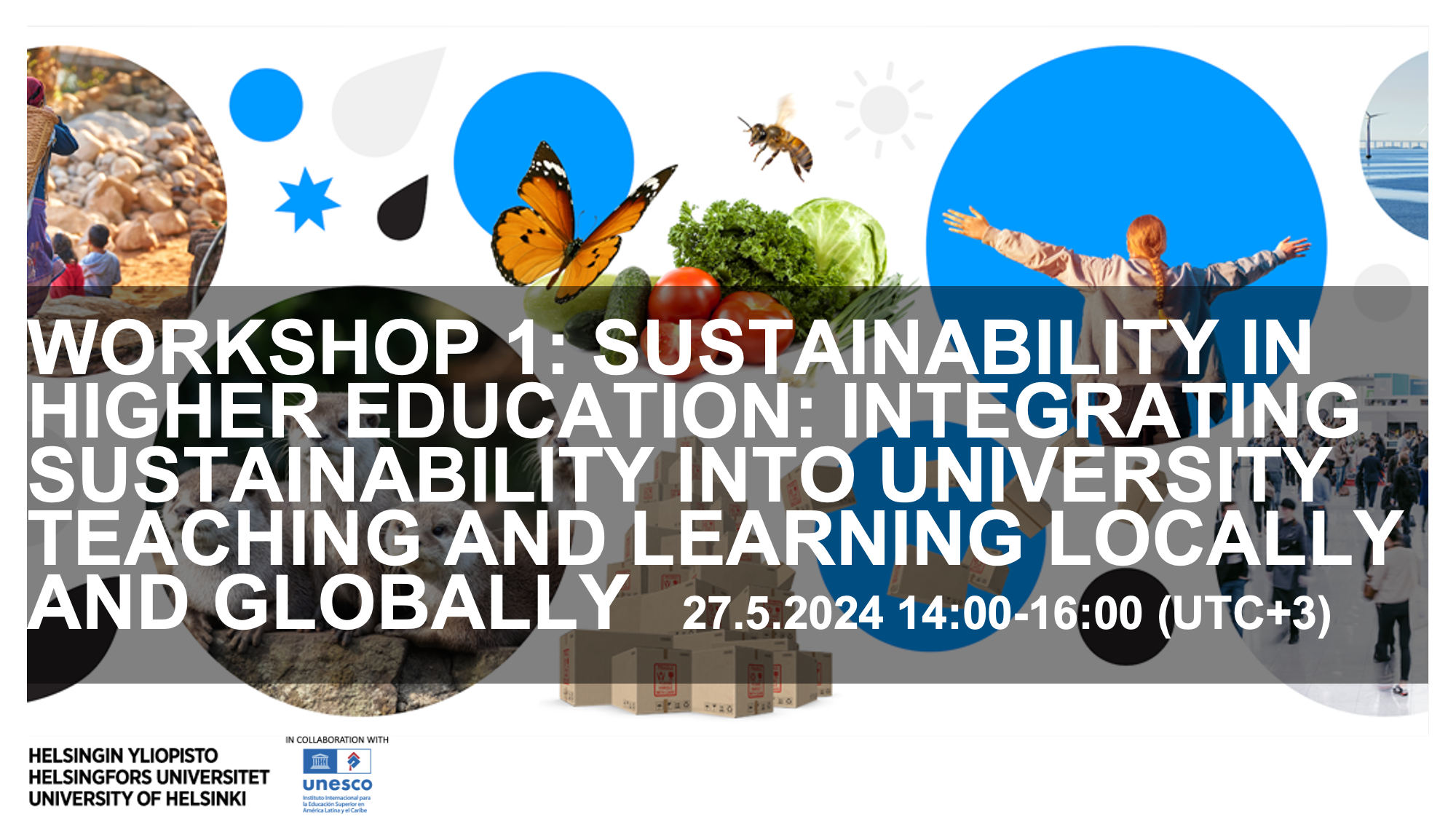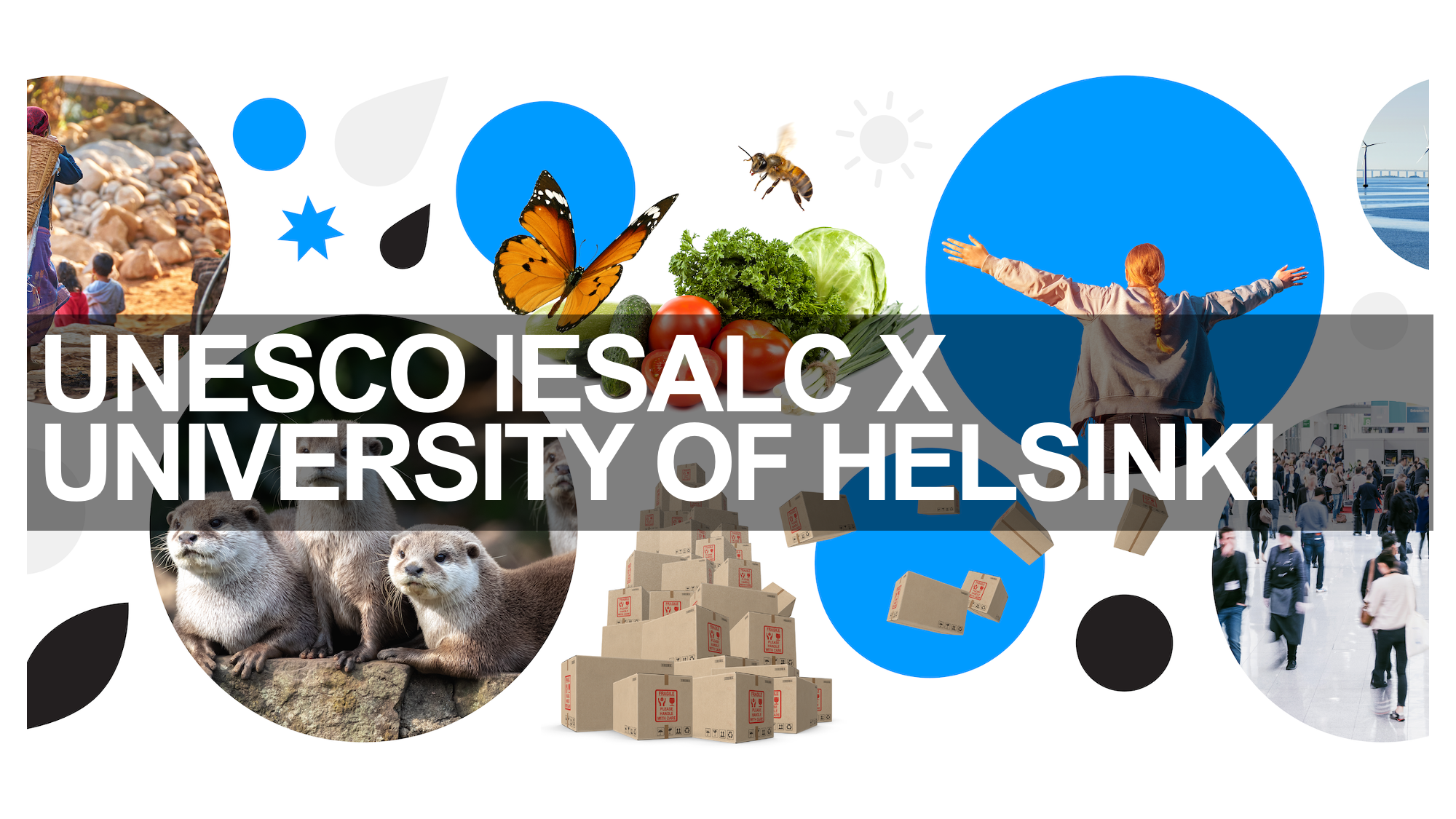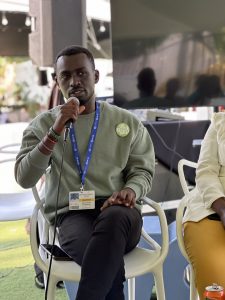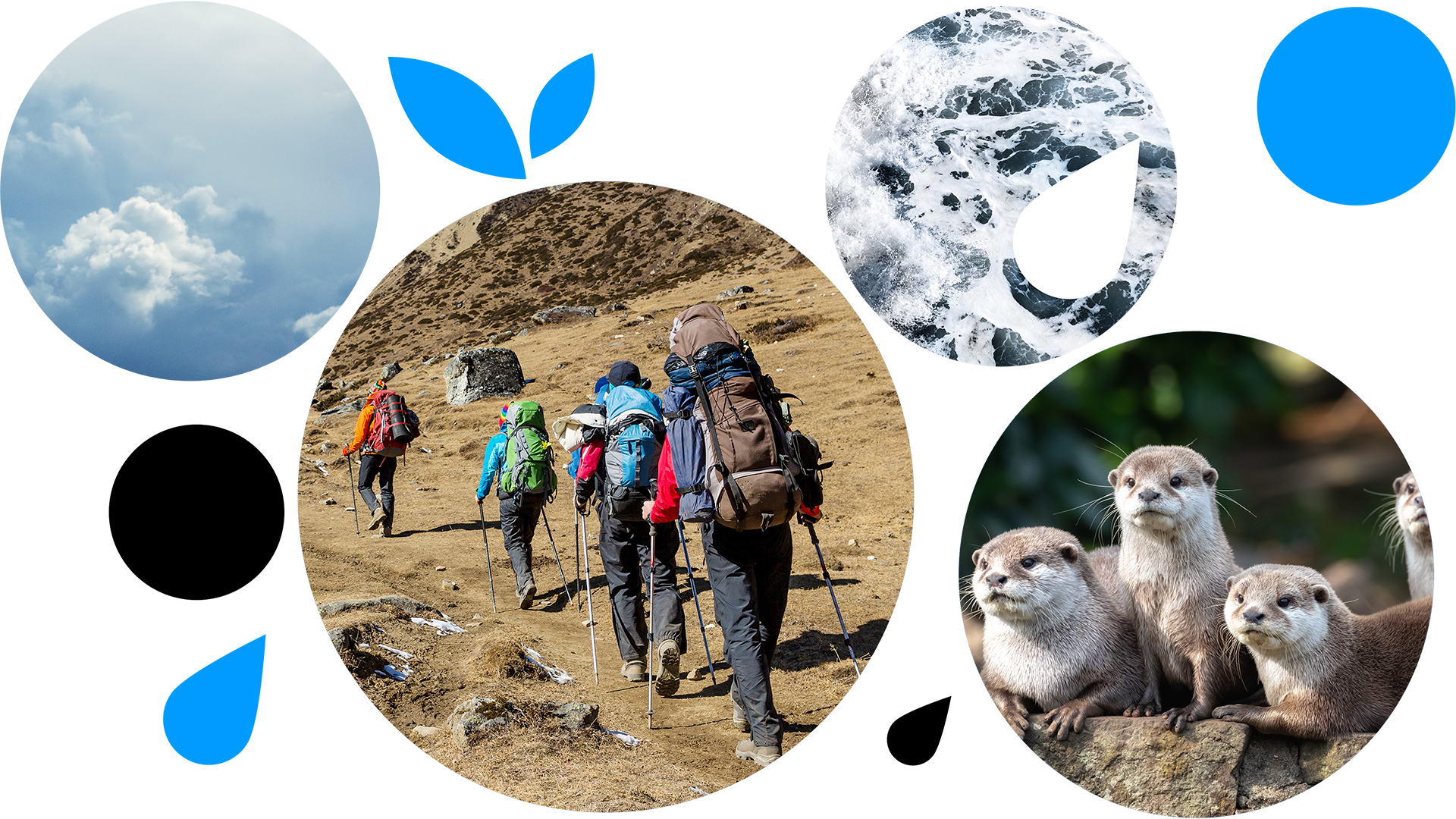
The Teachers for Sustainability network at the University of Helsinki, and UNESCO IESALC organized a joint workshop on 27th May 2024.
The first workshop brought together teaching personnel, management, and support staff from various higher education institutions in the Global North and Global South. The goal of the workshop was to explore the challenges, existing practices, and opportunities in pedagogical transformation towards sustainability from local to global levels.
Through concrete examples and discussions, the workshop discussed relevant drivers, barriers, risks, actors, and stakeholders related to sustainability in pedagogical design in higher education. It provided a platform for co-creating and evaluating possible tools and solutions to embed sustainability into university teaching and learning.
Workshop PowerPoint slides and video recording include presentations from the speakers:
- Rami Ratvio, University Lecturer, University of Helsinki
- Yuma Inzolia, Chief of Capacity Building, UNESCO IESALC
- Anniina Tammisalo, Generation Green, University of Helsinki, Finland
- Edwin Namakanga, Fridays for Future International, Rise Up Movement, Makerere University, Kampala, Uganda
- Maria Toro-Troconis, ALDESD director and UN Consultant
PowerPoint 1: Opening presentation and case examples
PowerPoint 2: Dr Yuma Inzolia: Transforming Higher Education: Towards Sustainability



